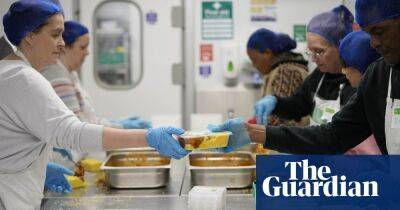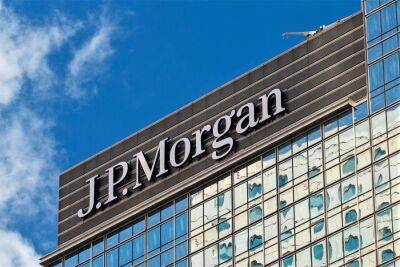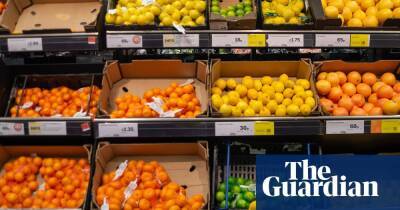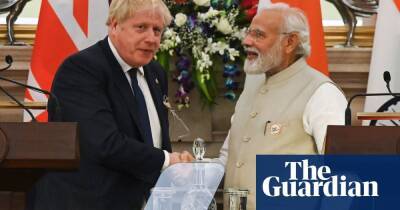Post-Brexit trade barriers increase price of food imported from EU – report
Brexit has pushed up the price of food imported from the EU, compounding Britain’s unfolding cost of living crisis, according to a report.
The thinktank UK in a Changing Europe (UKICE) said trade barriers introduced after leaving the EU had led to a 6% increase in UK food prices between December 2019 and September 2021, adding to the rising financial pressure for households.
The report found products with a higher EU import share, such as fresh pork, tomatoes and jams, were worse-affected than items where UK imports were more commonly sourced from the rest of the world, such as tuna and exotic fruits like pineapple.
Households across the UK are on track to suffer the worst living standards squeeze since the 1950s amid soaring inflation driven by the rising price of energy, food and fuel. Annual inflation reached 7% in March, the highest rate since 1992. Economists have warned that inflation, which acts as a gauge for the rising cost of living, could hit 10% this year amid rising prices for gas and electricity triggered by the war in Ukraine.
The report, produced by researchers from the London School of Economics’ Centre for Economic Performance with funding from UKICE, found that a “clear and robust impact of Brexit-induced trade frictions” had led to the increase in prices.
It said Covid-19 could be ruled out as an influencing factor because there was a correlation between price increases and the share of EU imports for a particular product. Analysing trade figures compiled by the UN and price data from the Office for National Statistics, it found the two most notable increases coincided with Boris Johnson’s 2019 election victory, when a “hard Brexit” became more likely, and the implementation of the post-Brexit trade deal
Read more on theguardian.com



![In Avalanche [AVAX] bears’ relentless pursuit where do investors stand](https://finance-news.co/storage/thumbs_400/img/2022/5/26/27268_yr1i8.jpg)


















